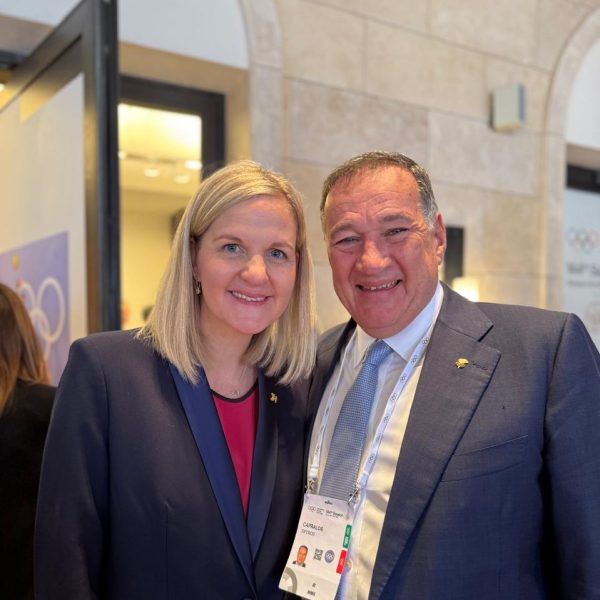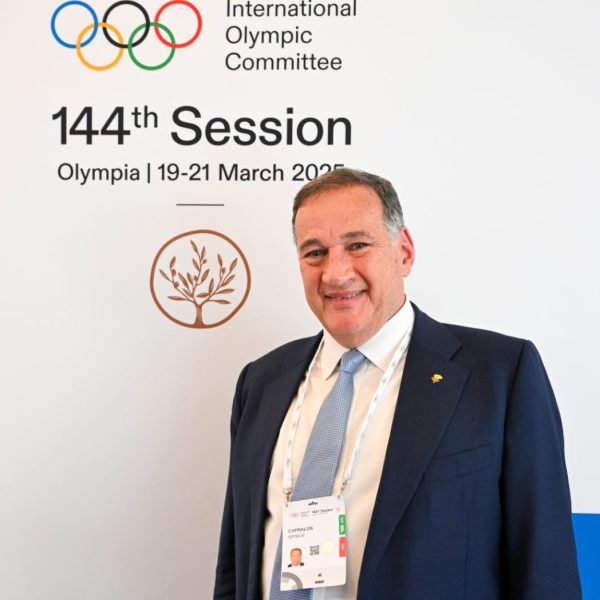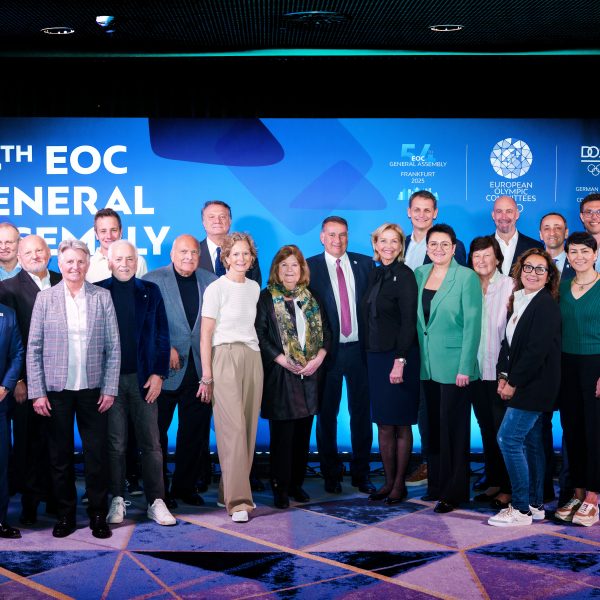The European Olympic Committees (EOC) unveiled today the results of a flagship survey aimed at assessing the impact of the current COVID-19 crisis on Olympic Movement stakeholders in Europe.
Forty-five of the 50 European National Olympic Committees (ENOCs) took part in the survey, which was conducted in collaboration with European management consulting firm Methodos Group from 6 to 14 April 2020.
“As the umbrella body for the National Olympic Committees of Europe it is our duty to assist our members where possible,” said EOC Secretary General Raffaele Pagnozzi. “By surveying the ENOCs, we were able to get a clearer idea of what is working well – and to share those best practices – while also figuring out what their greatest needs are and how we can help.”
The COVID-19 pandemic has forced the cancellation and/or postponement of sporting events worldwide, including the Olympic Games Tokyo 2020 and the Summer European Youth Olympic Festival (EYOF) Banská Bystrica 2021. The resulting financial and operational impact on sports bodies has been significant.
The study focused on four main areas: NOC management, athletes, events and support.
Of the 90% of ENOCs that answered the questionnaire, 93.3% have had to significantly review their workplace practices as a result of the recommended health precautions to reduce the spread of COVID-19.
A total of 66.7% of participating ENOCs reported that their elite athletes were unable to use training facilities. Only 28.8% said their elite athletes were still able to use national training facilities, but only under certain circumstances. These include receiving special permission from the government or facility owner and respecting specific safety measures such as social distancing, limits of five athletes at a time, etc.
Half of the ENOCs (53%) stated they are providing their elite athletes with access to mental health services and/or access to psychologists directly through NOC services and/or recommending them to other national specialised services.
With the Olympic Games Tokyo 2020 postponed to 2021, the next steps ENOCs are planning to take include re-balancing their budgets, communicating with all stakeholders (including the International Olympic Committee (IOC), Tokyo 2020 Organising Committee and National Federations), negotiating with sponsors, suppliers and airlines, and providing athletes with the necessary support.
With regard to sponsors, a majority (86.7%) of the ENOCs stated that discussions with their partners are ongoing. Only 6.7% of sponsorship contracts have been cancelled, while 6.6% have been extended.
In relation to events scheduled from February to June 2020, for 95.6% of the ENOCs the decision to suspend sports events and/or access to facilities was made solely by the national or local authorities. The estimated financial losses for the cancellations remain unclear for 71.1% of the ENOCs.
Of the ENOCs that participated in the survey, 77.8% said their local and national governments could help sport recover from the crisis by implementing three key measures: financial assistance and tax reduction, allowing athletes to train while respecting social distancing measures, and safeguarding the health of the public.
Because sport plays a significant role in our communities, from fostering a sense of belonging to improving health, the ENOCs were asked to describe the ways in which sport can lift people’s spirits during times of crisis, such as the COVID-19 pandemic.
Some of the responses follow:
“Sport has the power to turn the public’s attention [towards] the right values, to give
hope and optimism, and is always in the function of creating a better society.”
“Sport is a vital tool that has the capacity to contribute greatly to emerging from the crisis. This will be done primarily through self-confidence, self-activeness of our athletes, coaches and sport community who do their utmost to maintain their psychological strength and physical shape. We are confident sport will become an even more significant motivation for our athletes to strive for excellence.”
“Sport can make a significant contribution by leading the way back to normality, especially for children and youth.”
The results of the survey were discussed today at an extraordinary meeting of the EOC Executive Committee, which was held via teleconference. A full report will be shared with the 50 ENOCs.
“Our purpose at Methodos is to allow changing something that is desired, enjoyable and authentic for people and organisations,” said Methodos Group CEO Filippo Muzi Falconi. “The change we are facing, however, was not a choice and is dramatically difficult. Nevertheless, listening and understanding stakeholders is the basis for helping them to deal with the situation. Methodos Group was proud to make its listening expertise available to EOC.”



















